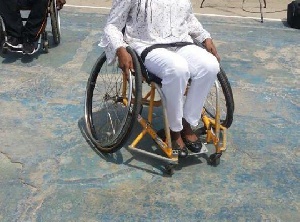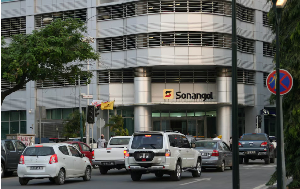Globally, an estimated 1.3 billion people live with some form of disability today.
Ghana is not left behind, as persons with disabilities make up nearly 10 percent of the population.
Facing discrimination and lack of opportunity, many Ghanaians with disabilities are systematically excluded from access to services and places, legal aid, healthcare, and more. Often, these disparities are sharper in rural settings with a greater lack of infrastructure, investments, and institutional support. This has led to the launch of a disability strategic plan in Accra on November 6 at the conference room of Ghana's Shippers Authority.
The theme at the launch, tagged "Empowering Persons with Disability through Entrepreneurship," witnessed various stakeholders present, such as Opportunity International Savings and Loans Limited, as well as Ignite Business Innovations, who have supported the care of disabilities in Ghana according to the organizers, and they were rewarded with citations.
In his address during the strategic plan, the Ghana Persons with Disability Entrepreneurship and Business Association (GH-PWDs EBA), led by its president Richard Offei, emphasized that "the extent of inequalities experienced by persons with disabilities in all areas of development is often the result of shortcomings in the structural, social, political, and cultural environments in which they reside, including lack of accessibility of physical and virtual environments; institutional and attitudinal barriers; exclusion; and unequal opportunities."
Richard Offei highlighted the negligence and lack of support disability-inclusive development faces in the country and called on the government to come out and support PWDs.
He expressed deep concern over the failure to implement Ghana's Disability Act 2006 (Act 715) provisions of care for persons with disabilities, stating that the Act alone is crucial for safeguarding the rights and dignity of disabled individuals in Ghana.
"The prolonged disregard for the law is not just negligence but a deliberate neglect of the rights of disabled citizens," Offei stated.
He urged the central government to take swift and decisive action to address the issue, warning that continued non-compliance would further marginalize disabled persons.
Offei further emphasized that the failure to enforce the Act exacerbates discrimination and stigmatization faced by disabled persons in Ghana, stating,
"This neglect is not just a bureaucratic oversight but a serious injustice that perpetuates inequality and stifles national development."
He concluded by advocating for immediate action from both the government and private sectors to rectify the situation and fully respect the rights of disabled individuals
Regional News of Friday, 8 November 2024
Source: Frank Owusu Obimpeh, Contributor













